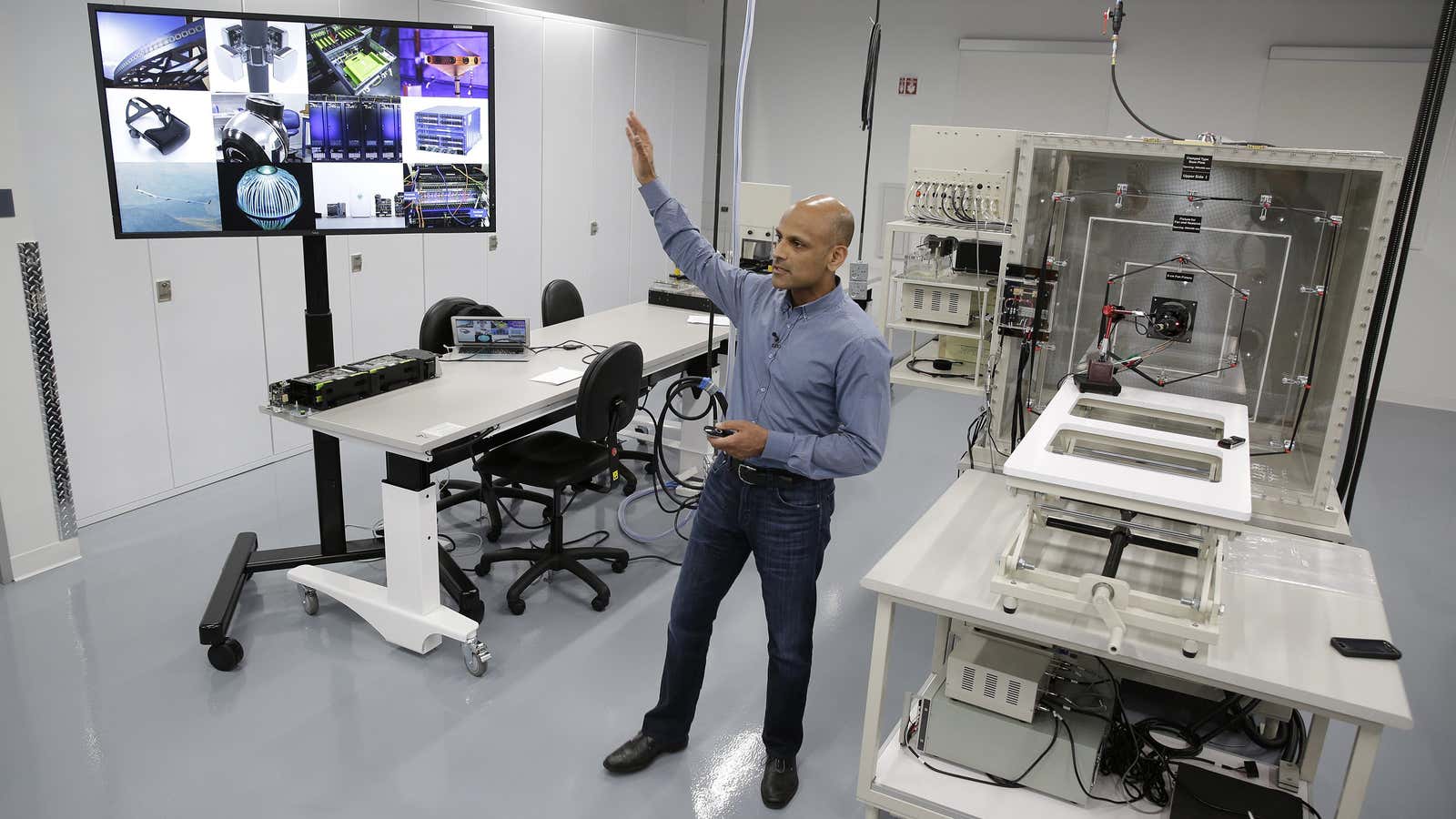Barcelona
Facebook is in a sharing mood at the Mobile World Congress (MWC) trade show this year, inviting telcos and equipment vendors to share the spotlight with it. Jay Parikh, the social network’s infrastructure chief, held a briefing for the media with five telco partners, announcing partnerships and projects designed to boost mobile connectivity in countries like Peru, Hungary, Pakistan, and Malaysia.
Notably absent from Facebook’s announcements this week are updates on its more outlandish attempts to deliver internet connections, like its Aquila drone project. The idea of Aquila is to fly a gigantic drone (wingspan: 140 feet) that beams an internet connection to people on the ground. The project was the major theme of Facebook’s presence at MWC last year, but Parikh didn’t give an update this time. “Facebook has struggled to define its role in infrastructure deployment and connectivity,” said Matthew Howett, founder of research firm Assembly.
Instead, Facebook talked about more prosaic networking technologies—things like backhaul, base stations, and radios—that were more familiar to the assembled crowd of telco execs. It’s a shift in emphasis for Facebook, away from its Free Basics zero-rating efforts, in which telcos offer subscribers packages with cheap or free access to Facebook, but limited or paid access to the rest of the internet. This hit a major roadblock when regulators in India blocked Facebook’s attempt to offer Free Basics there in 2016. “Talk about drones and balloons to provide connectivity are far quieter now than before,” Howett said.
Facebook and its telco partners have long tried to accommodate each other’s divergent interests—with Facebook usually coming out on top. For years, telcos have complained that they foot the bill for the mobile infrastructure that allows Facebook to serve its users and earn billions in the process.
Telecoms bosses now sense a shift in Facebook’s approach. Although they were guarded about Facebook’s motives at the press briefing, privately they expressed satisfaction that the social network was starting to realize the limits of its influence. “They need us,” said one senior executive at a European carrier, confidently. “They now realize that the local market is local. You have to deal with local regulators. That’s why they are keen to work with us,” the executive, who didn’t want to be named, said, after a meeting with Facebook earlier in the day.
In the meantime, Parikh and his team continue to develop technologies that could lower the cost of infrastructure for telcos, a way to get more goodwill from frenemies in the telecoms industry. Facebook’s primary vehicle for this is the Telecom Infra Project (TIP), which counts more than 500 equipment makers, operators, and others in the industry as members. Its newest member is Norway’s Telenor, which will trial a Facebook wireless system called Terragraph that’s designed to cheaply connect mobile base stations in dense urban areas. The trial will take place in Kuala Lumpur, Malaysia, where it owns a carrier called Digi, sometime in the third quarter of this year, Telenor said.
Projects like the Terragraph trial demonstrate how Facebook plans to work with telcos in the future. Parikh said Facebook paid for the development of the Terragraph technology, but the operators pay the cost of deployment in trials. “Their approach is now less global, and maybe also more in favor of partnerships,” the European telco exec said of Facebook’s apparent shift in approach.
